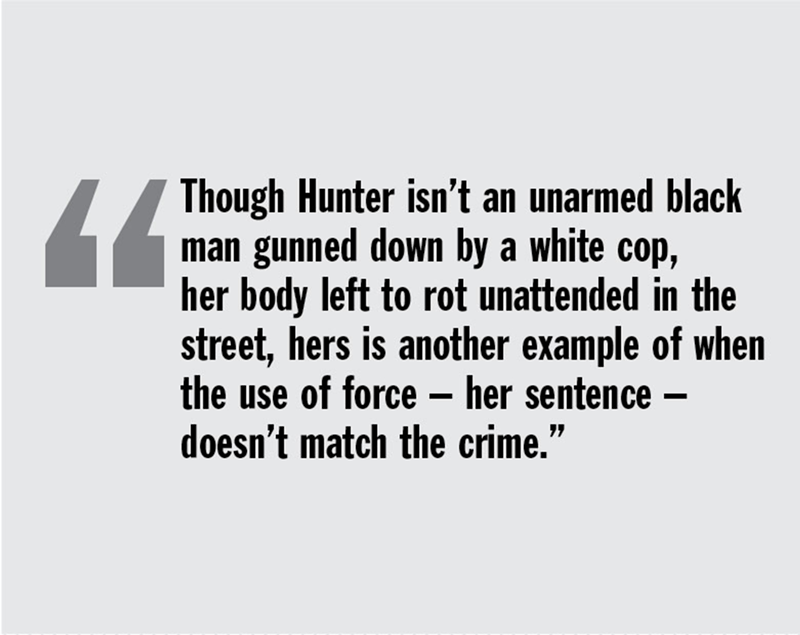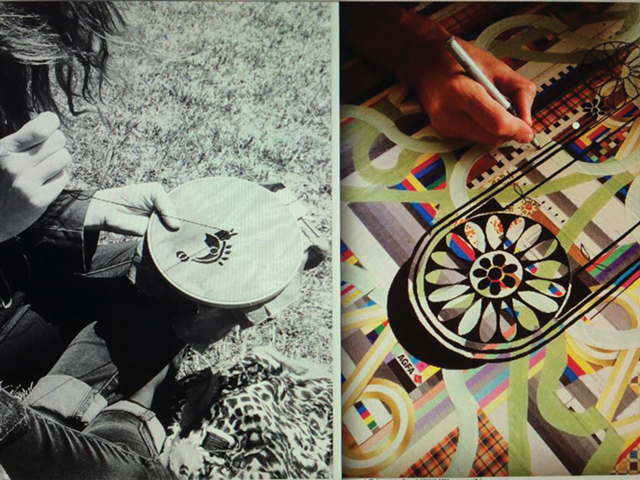I am race fatigued.
I used to joke with a black woman I worked with at Cincinnati Magazine that “racial strife makes me sleepy,” during Barack Obama’s run-up to the Democratic primary when white supremacy was rearing its ugly head for the long haul.
But we racially conscious blacks cannot afford to sleep too long.
I am still tired.
I am not tired of being black — whatever that means to The Looker — just exhausted to my bones by what blackness becomes when it’s folded into blacks and the police, blacks and judges, blacks who are judges and blacks and jury verdicts.
In those hands, blackness morphs into rage, disappointment, property damage, protests, shame, splintered loyalties and proof, once and for all, that we are indeed living in Two Americas, a bifurcated landscape where, after all these generations together, we steadfastly still refuse to accept and/or respect the complexities of race. Where everything and everyone black and white is not merely black and white.
The refusal of so many American grand juries to indict white officers in the vicious overkill of unarmed people of color across this nation despite recorded proof of excessive deadly force is now laughable in that way children or mentally ill people laugh inappropriately and too loudly.
Blackness is now a joke, a punch line every single non-black-skinned person is in on at our expense.
And this dark jokiness creates an air of anxiety, depression and isolation. It keeps us apart and uneasy.
I used to think this was all masterminded by some Great White Oz, a collective consciousness my Grandmother Mary used to call “they” — that same “they” black urban conspiracy theorists point fingers at with their erroneous statistics and jailhouse tales of how “the white man done done us wrong.”
Whenever these people — my grandmother included — were asked who is “they,” the answer would come back “them.”
But now I know “they” is actually and precisely our criminal justice system, from police departments to prosecutors to judges to jailers to the prison industry complex that warehouses, feeds and dresses more men of color than all the black rappers enslaved to record labels and all the black athletes beholden to professional sports teams combined x 10,000.
What we need are white judicial snitches, insider whistleblowers who will call to the carpet judges abusing their sentencing powers to ensure sentences match the crimes; white police officers willing to spearhead progressive changes in training tactics and who will not stand around police locker rooms idly listening to and laughing at racist tales of street warfare; and more white, A-level attorneys willing to do pro bono work on behalf of wrongly charged defendants of color and, increasingly, their bereaved families.
We need white people to do more to stop the bleeding since the criminal justice system clearly favors them disproportionately over people of color in America because what works for one population of people must be recalibrated to work in favor of the rest of us.
I am not talking about the cinematic White Savior favored by Hollywood to swoop in and save black maids and orphaned black athletes from themselves as swelling strings cue us to cry.
I’m talking about white people who recognize their entitlement and use their powers for good.
Hamilton County Democratic Party Chairman Tim Burke at least has the right idea.
When Hamilton County Common Pleas Court Judge Norbert Nadel was asked by Clyde Bennett, the attorney for beleaguered former Hamilton County Juvenile Court Judge Tracie Hunter, to allow Hunter to remain free until all her appeals had been exhausted in her conviction for having an unlawful interest in her brother’s county employment records, Burke penned a Dec. 8, hand-delivered letter to Nadel imploring the judge to grant Bennett’s request.
“The conviction she now has appealed and even those crimes with which she was charged but not convicted on, were not violent,” Burke wrote. “She did not personally financially benefit. Under the circumstances, there is little likelihood of repetition. She is clearly a candidate for probation and no jail time.
“There is also a more difficult but very real issue,” Burke continued. “All across the country, serious questions of trust are being raised about the fairness of our justice system in dealing with matters involving race. To sentence to jail the first African-American judge to ever be elected in our juvenile court, and one of the very few African-Americans to ever be elected in a contested county-wide election in Hamilton County, to jail under these circumstances, given her background, will only deepen that mistrust.”
The letter is signed by 56 black and white Cincinnati notables; however, their appeals fell on Nadel’s deaf ears and the next day Burke issued a press release acknowledging Nadel’s refusal to grant Hunter’s stay until her appeals ran out.
It’s worth noting here that Hunter was never endorsed by the county’s Democratic Party and she handily beat the party’s endorsed candidate in the primary leading to her hotly contested win that led to her infamous court battle that, 18 months later, finally got her the juvenile court judge seat from which she has finally been ousted in yet another court battle.
Hunter has summarily been dismissed as “crazy,” and many people, when asked, are sick of seeing her story in the news and just want her to go away.
But black people of every stripe — that is, blackness, period — are as entitled to exhaust every scintilla of justice as any white person traversing the criminal justice system and we should never be expected to just “go away” because onlookers are tired of seeing us and our literal trials and metaphorical tribulations.
Though Hunter isn’t an unarmed black man gunned down by a white cop, her body left to rot unattended in the street, hers is another example of when the use of force — her sentence — doesn’t match the crime.
She’ll begin serving her sentence Dec 29. Then maybe we can all get some rest. But what’ll we do when we wake up?
CONTACT KATHY Y. WILSON: [email protected]






